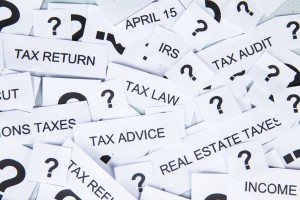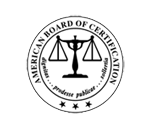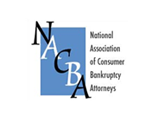Can I Discharge Tax Debt in Bankruptcy?
Kansas City Bankruptcy Lawyer Explains IRS Debt Options
 Tax debt can be particularly stressful to those struggling to make ends meet. It is true that the Internal Revenue Service (IRS) does not engage in illegal creditor harassment or threats – such calls about tax debt are a scam! Letters are always the first indication from the IRS of collection issues that are being pursued. Still, this does not mean that the IRS will not try to collect money from you. The IRS is powerful and persistent, and interest on back taxes and penalties can grow quickly. However, depending on your circumstances, you may be able to use an IRS debt management program to reduce what you owe. Additionally, in some situations, filing bankruptcy can help you cope with or completely eliminate your tax debt.
Tax debt can be particularly stressful to those struggling to make ends meet. It is true that the Internal Revenue Service (IRS) does not engage in illegal creditor harassment or threats – such calls about tax debt are a scam! Letters are always the first indication from the IRS of collection issues that are being pursued. Still, this does not mean that the IRS will not try to collect money from you. The IRS is powerful and persistent, and interest on back taxes and penalties can grow quickly. However, depending on your circumstances, you may be able to use an IRS debt management program to reduce what you owe. Additionally, in some situations, filing bankruptcy can help you cope with or completely eliminate your tax debt.
If you are overwhelmed by tax debt, contact the attorneys at The Sader Law Firm today. Our attorneys have years of experience and Managing Member Neil Sader, is a board certified specialist in consumer bankruptcy law. We can explain your options for relief from overdue taxes. Together, we can explore options like bankruptcy, which can give you a clean financial slate for both taxes and other debt, in many cases.
Does Bankruptcy Clear Tax Debt in Missouri and Kansas?
Tax debt is not quite the same as other consumer debts, and cannot always be discharged through bankruptcy. However, in some cases, particularly with old taxes, bankruptcy can provide debt relief. You can discharge tax debt in either Chapter 7 bankruptcy or Chapter 13 bankruptcy if:
- The debt is for income taxes. Property and other types of taxes are not eligible for discharge.
- The tax debt is at least three years old and returns were filed. New taxes are generally nondischargeable for this reason. However, the statute of limitations on tax collection is 10 years, so if you have older overdue taxes, bankruptcy can help.
- You filed tax returns for eligible debt at least two years before filing bankruptcy. If you do not file, the IRS may complete a return for you. However, this substitute return is not sufficient if you wish to file bankruptcy. You must file a tax return for each year yourself, even if you miss the deadline. We often tell clients that being unable to pay your taxes is not a crime, however, not filing a return is a crime!
- Your debt passes the “240-Day Rule”. If the IRS has assessed your tax debt, it must be at least 240 days prior to the day you file bankruptcy. In an assessment, the IRS considers what you owe and tries to negotiate a solution with you.
If your tax debt meets these four requirements, it will likely be considered unsecured, dischargeable debt in Chapter 7 bankruptcy. In Chapter 13 bankruptcy, your eligible tax debt will be classified as unsecured nonpriority debt. This means you pay back the same portion of it during your three to five year repayment plan as you do other unsecured creditors. Whatever is not paid back can then be discharged. If your tax debt does not meet these requirements, you will still owe those taxes after bankruptcy.
What If My Tax Debt is Not Dischargeable Through Bankruptcy?
Bankruptcy may still be a viable option for you, even if your taxes are nondischargeable. First, when you file for bankruptcy, the courts issue an automatic stay, which suspends all collection actions by your creditors. This includes the IRS. Therefore, you will have at least temporary relief from the stress of your tax debt. Additionally, after your bankruptcy is complete, you may be in a better financial position to repay your back taxes.
Filing Chapter 13 bankruptcy may afford additional benefits, even for nondischargeable tax debt. Your priority tax debts must be paid in full by the end of the bankruptcy process, which means they will be included in your Chapter 13 repayment plan. This serves the dual purpose of allowing you to pay what you owe while also eliminating your other debts. However, you must continue to file tax returns and pay income tax throughout the bankruptcy process, which takes several years.
The IRS offers several bankruptcy alternatives which may help you manage your tax debt and avoid serious penalties. These include:
- Temporary delay. If you cannot afford to pay your back taxes at one time, the IRS may grant you a temporary delay in collections. However, interest will continue to accrue and you may still face a tax lien, depending on your circumstances.
- Offer in compromise (OIC). In certain cases, the IRS may accept a smaller lump sum payment in return for forgiveness of your entire tax debt. However, the IRS is not obligated to accept your offer. As a result, it is best to have a bankruptcy lawyer help you with OIC negotiations.
- Installment agreement. The IRS offers monthly payment options, allowing you to pay your back taxes slowly. You may still pay some interest, but you will avoid steep penalties and IRS collection actions.
Need Tax Debt Help? Get a Free Consultation with a Kansas City Bankruptcy Lawyer
If you are struggling with back taxes, you may not know all the options available to help you get out from under unmanageable debt. At The Sader Law Firm, we offer free telephone consultations to determine your options. A qualified Kansas City bankruptcy lawyer from our firm will answer your questions. If filing bankruptcy or negotiating with the IRS is in your best interest, we can discuss providing those services.
Having legal counsel on your side will give you the best chance of successful debt relief and alleviate the stress of facing the IRS alone. Contact us online or call our Kansas and Missouri law office to start working on a debt relief plan today.
 Book an
Book an Email
Email Directions
Directions














